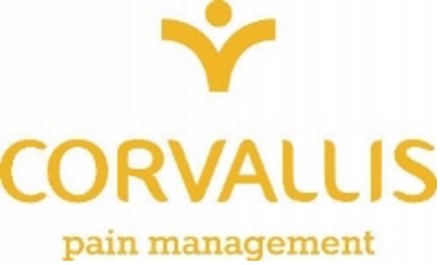
Horror stories of people getting scammed out of hundreds or even thousands of dollars aren’t in short supply. While lounging at home and browsing through the latest news, it's all too common to come across stories detailing how someone was deceived into clicking an obviously suspicious attachment, only to have their financial security compromised by cybercriminals. It's natural to think, "That could never happen to me!"… “I’d never fall for that!” … But would you? …. The reality is: Anyone can be targeted!
The harsh reality that anyone, regardless of their financial savvy, can become the target of a financially crippling scam has been starkly illustrated in recent events. Even a finance guru, equipped with extensive knowledge and often seen guiding others on financial matters, was defrauded of $50,000 by an individual posing as a CIA agent. This actual crime serves as a potent reminder of the importance of vigilance and the need for everyone to stay informed about the latest scam tactics to protect their assets.
Charlotte Cowles, a seasoned financial advice columnist for New York Magazine’s digital fashion news site, The Cut, wrote a first-person account of how she boxed up $50,000 in cash in a shoebox, walked it out to the sidewalk in front of her house and willingly handed it over to an unknown person in a white Mercedes SUV. Looking back, she was humiliated that she couldn’t see the red flags, but how these criminals plotted every step would have convinced most people.
I suggest giving her detailed story a read, but to give you the nutshell version, this elaborate scam started early in the day when a woman from “Amazon’s customer service” called to inquire about unusual activity on Charlotte’s account. The woman told her this had been a frequent issue for the company, provided a (fake) case number ID, and recommended that Charlotte check her credit cards immediately. She shared that the issue was so prevalent that the company worked with a liaison at the Federal Trade Commission (FTC) and offered to refer her to him for additional assistance.
Once connected, the FTC agent provided his (fake) badge number for reassurance and a direct number to reach him at and confirmed personal details like her full name and Social Security number. Convincing, right? That’s when things took a turn. The agent shared that he had been following her case for some time, and to date, there were 22 bank accounts, nine vehicles and four properties registered under her name. The bank accounts had wired more than $3 million overseas, mainly to Jamaica and Iraq, and he wondered if she could tell him anything about this.
This crazy scheme escalated from there. The agent texted her a photo of her ID, claiming it had been found in a car rented under her name that was abandoned on the southern border of Texas with blood and drugs in the trunk and was linked to an even bigger drug raid. He told her there were warrants out for her arrest in multiple states and that she was facing heavy charges of cybercrime, money laundering and drug trafficking.
She frantically Googled her name, looking for any warrants. Nothing. Sensing her rising discomfort, he asked if she had recently used public Wi-Fi. She had, at the airport. “Ahh…” he said, “… that’s how most of these things start.”
While messaging her husband about the grave danger she believed she was in, the fake agent presented her with a way out, … under the condition of absolute secrecy. Trust was off the table; according to the agent, she was under constant surveillance. They claimed to have compromised her laptop, were monitoring her home, and chillingly, could see her toddler son playing in the living room at that very moment. The safety of her child made her commit fully to resolving the issue. Unfortunately, you know how the rest of the story goes, where she emptied her savings and hand-delivered $50,000 to the scam artist in a shoebox adorned with a floral pattern through the window of a SUV.
Here's the real kicker: if Cowles, armed with financial acumen and a journalist’s skepticism, can be led astray, what chance do the rest of us stand? It’s a digital Wild West out there, folks, and the outlaws are on the prowl, looking for their next big score. This tale isn’t just a wake-up call – it’s a blaring siren for small business owners everywhere. If you think you’re too smart to get scammed, think again because it’s happening all the time.
When Charlotte began to share her story, everyone seemed to know someone who had gone up against a scammer and lost. One friend’s criminal-defense attorney father had been scammed out of $1.2 million. Another was a real estate developer duped into wiring $450,000 to someone posing as one of his contractors. Even a Wall Street executive had been conned into draining her 401(k) by a guy she met at a bar. These stories are everywhere and becoming far too common.
Cybersecurity cannot be ignored. With the AI tools available, scams are becoming more and more difficult to identify. If you want to protect yourself, your family, and your business, you absolutely MUST take your security seriously. Every day, hackers buy and sell personal information, like Charlotte’s Social Security number, on the dark web to hackers who will use it to run scams just like this one. You or your loved ones could be next.
This ISN’T meant to scare you, although it should; it’s meant to educate you and give you the upper hand to go up against these criminals. To protect what’s yours. The best way we can help is to offer a complimentary Cyber Security Risk Assessment. We’ll do an in-depth evaluation of your network and technology business practices, including scanning the dark web for leaked information, and provide you with a comprehensive report of what you need to do to be secure.
You can book your FREE Assessment with one of our experts by going to https://www.10dtech.com/discoverycall/ or calling (541) 250-4108 or (971) 915-9103.






